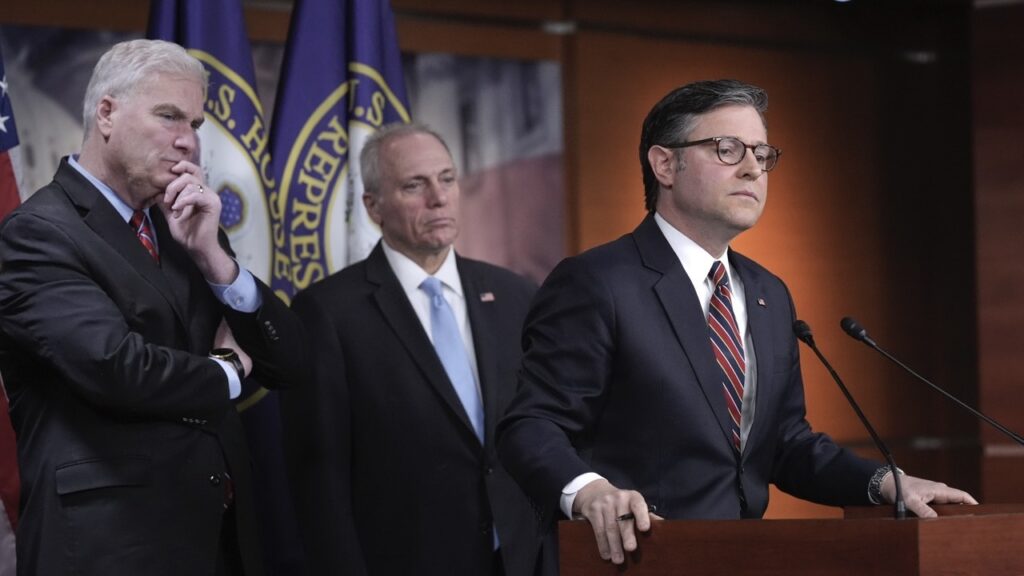Share
The nationwide scandal involving bribery in college admissions has also illuminated all the legal ways wealthy families can game the system. Now the debate over how to respond has hit the California Legislature, and struck a nerve not just with the state’s public higher education system but also with private colleges.

Felicia Mello
CALmatters
Critics of legacy preferences say they amount to affirmative action for the privileged, giving an edge to children of college-educated parents who are already more equipped to navigate the admissions process.
“This door of legacy admits is completely legal and has been used for centuries to get a certain type of person into the school,” Ting, a San Francisco Democrat, said Thursday in announcing the proposal. One of six measures introduced by a group of Democratic lawmakers racing to respond to the scandal, it’s likely to be the most controversial.
While California’s public universities officially ban admissions preferences for alumni and donors, Ting’s bill threatens to curtail private colleges’ access to the Cal Grant scholarships they receive from the state and distribute to needy students.
$237 Million in Cal Grant Aid
“There are serious consequences and potentially a major fallout among especially some of the smaller, more vulnerable institutions in our sector,” said Aram Nadjarian, a spokesperson for the Association of Independent California Colleges and Universities. The association also released a statement saying that legacy applicants “have a unique connection to the institution” and that colleges should retain the right to consider that as part of their application.
The university declined to comment Friday on its policies related to legacy admits but said in a statement that it was “currently reviewing all admissions procedures” and analyzing Ting’s bill. Legacy students made up about 19 percent of USC’s 2017-18 entering class, according to a post on the university’s admissions blog; the university refers to them as “Scions.”
“It’s important to us that our population of Scions is represented among the entering class,” the blog post reads, while noting that “there will always be legacy students…with very strong applications who don’t receive an offer of admission.”
Private Colleges and Universities Eschew Legacy Preferences
Stanford University, which accepted only 4 percent of applicants last year, includes legacy status in a range of factors that make up its holistic review process, spokesperson E.J. Miranda said in an email.
“We are studying the proposed legislation and look forward to engaging with the legislature on this topic,” Miranda said.
Some private colleges and universities in the state, including Caltech, eschew legacy preferences.
At Holy Names University in Oakland, more than 70 percent of the 1,000-member student body receive Cal Grants, said spokesperson Sonia Caltvedt. But the legislation wouldn’t affect Holy Names, Caltvedt said, because their admissions process does not favor donors’ children, alumni children or athletes.
“Our mission from the start has been all about access,” she said.
If the bill were to pass, it would likely pose the most problems for highly-selective colleges that want to foster alumni relationships but also rely on Cal Grant dollars to provide better financial aid packages to low-income students than they could fund on their own, said Jerome Lucido, director of the Center for Enrollment Research, Policy and Practice at USC.
Banning Legacy Admits Isn’t Sufficient to Ensure Equity
“They would have to decide, are we going to lose our aid, or are we going to lose this eager, full-paying constituency?” said Lucido, who formerly oversaw admissions for USC and the University of North Carolina at Chapel Hill.
The extra boost that an applicant gets from being a child of an alumnus, Lucido added, may actually matter less than the simple advantage of coming from a home where college is seen as a priority.
“That said, should [colleges] be practicing affirmative action for the wealthy?” he said. “I think, on the face of it, you have to say no.”
This story and other higher education coverage are supported by the College Futures Foundation.
CALmatters.org is a nonprofit, nonpartisan media venture explaining California policies and politics.
Two Teens Charged in Shooting Death of Caleb Quick
19 hours ago
Soviet-Era Spacecraft Plunges to Earth After 53 Years Stuck in Orbit
19 hours ago
Tax the Rich? Slash Spending? Republicans Wrestle With Economic Priorities in the Trump Era
19 hours ago
Experts Call Kennedy’s Plan to find Autism’s Cause Unrealistic
20 hours ago
Trump’s Trip to Saudi Arabia Raises the Prospect of US Nuclear Cooperation With the Kingdom
20 hours ago
Oh Ohtani! Dodgers Star Hits 3-Run Homer in Late Rally Victory Over Diamondbacks
20 hours ago
Tariff Talks Begin Between US and Chinese Officials in Geneva
20 hours ago
US-China Tariff Talks to Continue Sunday, an Official Tells The Associated Press
13 hours ago
Categories

US-China Tariff Talks to Continue Sunday, an Official Tells The Associated Press

Two Teens Charged in Shooting Death of Caleb Quick

Soviet-Era Spacecraft Plunges to Earth After 53 Years Stuck in Orbit

Tax the Rich? Slash Spending? Republicans Wrestle With Economic Priorities in the Trump Era














